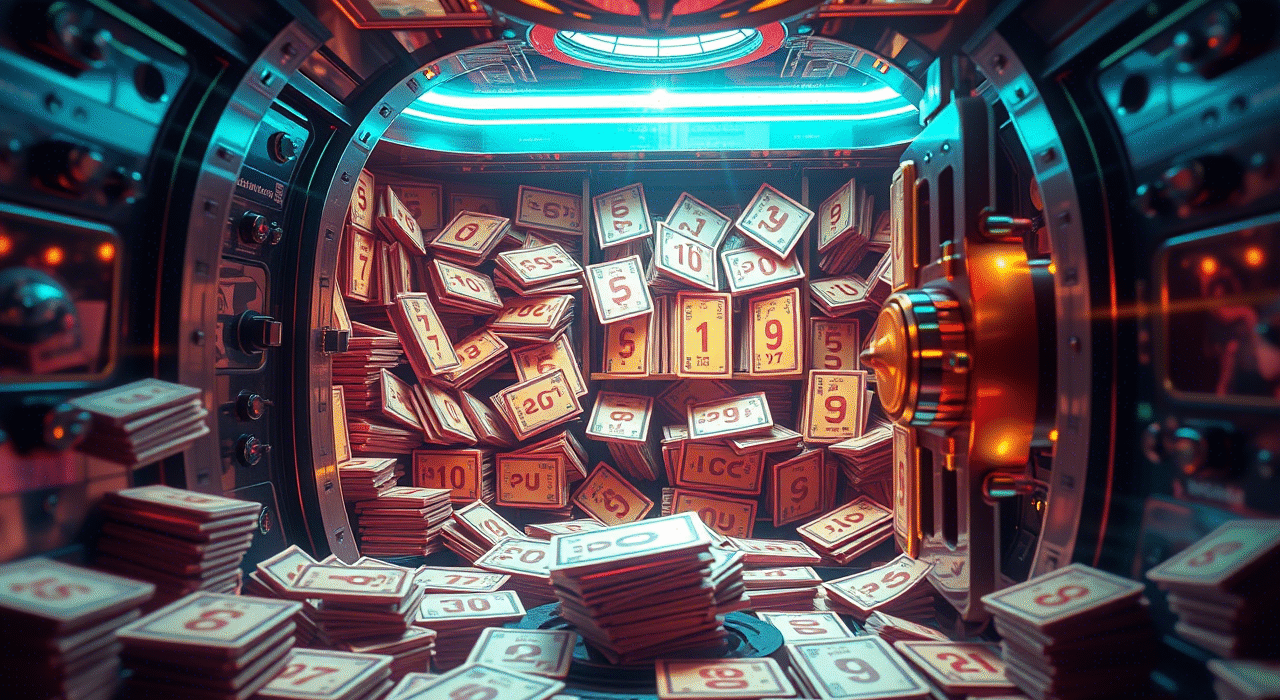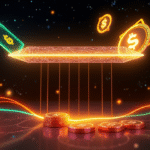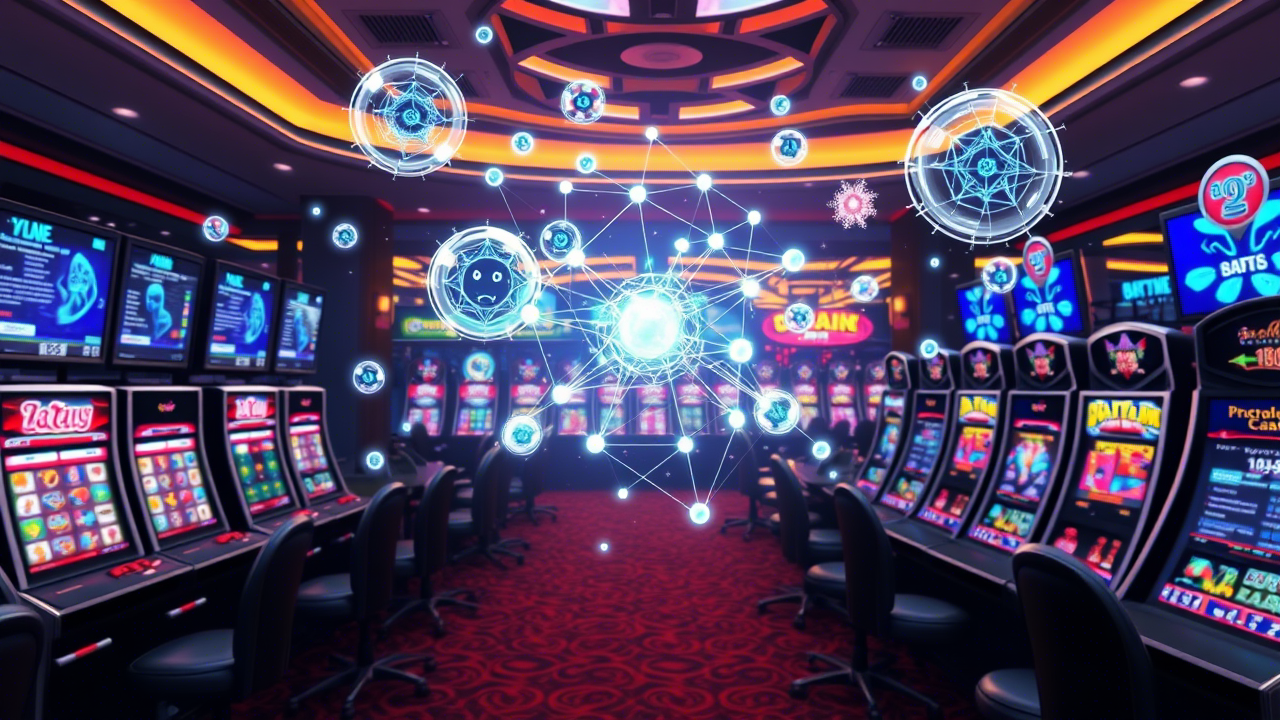🎰 A Ticket to the Future?
What if your next lottery ticket wasn’t just a throwaway slip… but a digital asset you could resell, trade, or even stake for passive income?
Welcome to the world of NFT-based lotteries—a rapidly emerging concept where lottery tickets are minted as non-fungible tokens, giving players a stake in more than just a fleeting chance at fortune. Blending the gamification of Web3 with the universal appeal of lotteries, this model is sparking serious interest from both crypto natives and traditional operators looking to future-proof their offerings.
But is this a passing trend—or the next evolution of one of the oldest forms of gambling?
🎟️ Wait, What Exactly Is an NFT Lottery?
At its core, an NFT-based lottery replaces the traditional numbered paper or digital ticket with a unique NFT—a cryptographic token stored on a blockchain that represents ownership of an entry into the draw.
But it doesn’t stop there.
These tickets can have embedded properties like:
- Rarity tiers (boosting odds or rewards)
- Tradability on open marketplaces
- Artwork or collectible value
- Perpetual utility (e.g., automatic entry into future draws)
- Governance rights over the lottery’s structure or treasury
The idea is to merge the speculative thrill of the lottery with the collectibility and financial mechanics of NFTs.
🧪 How Does It Work in Practice?
A typical NFT lottery works like this:
- Minting Phase: Users buy (or mint) NFT tickets, often with crypto (ETH, USDC, MATIC, etc.).
- Smart Contract Setup: The prize pool is held in a smart contract. No human intermediaries.
- Draw & Randomness: A verifiable random function (VRF) selects winners. All results are on-chain and tamper-proof.
- Payout: Winnings are instantly distributed, and in some models, winning NFTs are “burned” or converted into upgraded tokens.
In some ecosystems, the NFTs may continue to hold value post-draw—like access to future draws, community events, or staking rewards.
🔥 Why Are People Hyped?
1. Ownership & Tradeability
Unlike a regular ticket, an NFT lottery ticket is a real asset. It can be sold before the draw if it has perceived value (rarity traits, art, whitelist access, etc.).
2. Gamification
Many NFT lotteries come with RPG-style elements: XP systems, leveling up, loot boxes, or character-based collectibles.
3. Transparency
Blockchain ensures that prize pools, entries, and winners are all verifiable. No more relying on shady televised draws or third-party RNG systems.
4. Residual Utility
Win or lose, you might retain airdrop eligibility, staking perks, or community status from your NFT ticket.
🧵 Real-World Examples (So Far)
| Project | Chain | Key Features | Status |
| PoolTogether | Ethereum | “No-loss” lottery using DeFi yield | Active & evolving |
| Lucky Lion | BNB Chain | PFP-based lottery + token staking | Active |
| MetaLotto | Polygon | Weekly NFT-based draws + DAO governance | Dormant |
| MoonLottery | Solana | Art-based NFT tickets, part of larger metaverse | Concept-only |
| LottoPunks | Multichain | 10k avatar collection with monthly prize draws | Sold out, niche |
None have yet reached mega-scale adoption—but the prototypes are maturing fast.
🚧 The Challenges Holding It Back
⚠️ 1. Regulatory Gray Zone
Lotteries are heavily regulated—often state-controlled or banned outright. The moment real-world value is attached to winning (even in crypto), most jurisdictions view it as gambling.
Worse, NFT lotteries can bypass KYC and operate globally—making them immediate targets for regulatory scrutiny.
⚠️ 2. Scams & Rug Pulls
As with many NFT and DeFi ventures, the lack of oversight opens the door for fraud. Several “lottery” projects have disappeared overnight, leaving users with worthless tokens.
Example: MetaDraw on BSC promised transparency and sustainability. Within weeks, its devs vanished, and the smart contracts were drained.
⚠️ 3. Smart Contract Risks
If the randomness isn’t truly decentralized (like Chainlink VRF), the system can be gamed. Poorly coded contracts also expose funds to exploitation.
⚠️ 4. Public Perception
To the average user, NFTs still scream “Ponzi” or “speculation.” Adding gambling to the mix doesn’t help mainstream trust.
🌍 Could State Lotteries Adopt NFTs?
Here’s where it gets interesting.
Several government-run lotteries (like in the UK, Malta, and Finland) have explored blockchain-based solutions for ticketing and draw verification.
Theoretically, these agencies could:
- Use NFTs for digital ticketing
- Add utility or artwork to boost engagement
- Partner with existing NFT brands (like sports leagues or artists)
- Offer better transparency and automated payouts
In fact, El Salvador’s national lottery reportedly explored NFT mechanisms on Algorand.
The question isn’t if it’s feasible—it’s whether regulators can stomach the volatility, decentralization, and perceived risk.
💡 Beyond the Jackpot: Creative NFT Use Cases
NFT-based lotteries are just the tip of the iceberg. Here’s what else could evolve:
🎨 Collectible Tickets
Imagine a limited-edition World Cup lottery where each ticket is an NFT with player art and licensed IP.
🗳️ DAO-Driven Prize Pools
Let the community vote on prize distribution, frequency, or even donation splits (e.g., 10% to charity).
📈 Secondary Market Prediction
Lottery tickets become tradable commodities. Odds, influencer hype, and rarity traits could drive pricing before the draw.
💰 Recurring Rewards
Win or not, owning a “Genesis” ticket might give perpetual rewards—like royalties, staking interest, or entry into private games.
📉 Where Could It All Go Wrong?
- Overcomplexity: If users need to navigate MetaMask, gas fees, rarity charts, and Discords just to buy a ticket, most won’t bother.
- Value Collapse: If NFTs lose their perceived utility, liquidity disappears, and resale value crashes.
- Legal Shutouts: If too many projects run afoul of laws, major chains may ban lottery-style smart contracts altogether.
🧠 Expert Voices Weigh In
Charlotte Day, Blockchain Compliance Advisor:
“NFT-based lotteries are innovative but risk triggering a regulatory hammer. Without licenses or age verification, these platforms could be wiped out overnight.”
Jonas Bremer, Web3 Game Designer:
“The idea of merging gamification with chance is as old as loot boxes. NFTs just give it a tradeable skin. If done right, it’s sticky—if not, it’s dangerous.”
Markus Tan, Former Lottery Exec Turned Consultant:
“Governments should co-opt this tech, not ignore it. The lottery is stale. This might be its last real shot at Gen Z relevance.”
🎯 So, Are NFT Lotteries the Next Big Thing?
If we’re honest, NFT-based lotteries still live at the intersection of hype, hope, and hacker risk.
But they also offer a glimpse into how lotteries—long stuck in outdated systems—could evolve into participatory, gamified, community-led experiences.
Will most of today’s NFT lottery projects survive? Probably not.
But the idea that your “ticket” could be an asset, with utility beyond the draw, and governed by the crowd, is powerful. With the right UX, legal scaffolding, and trust layer?
Yes—NFT-based lotteries could absolutely be the next big thing.











